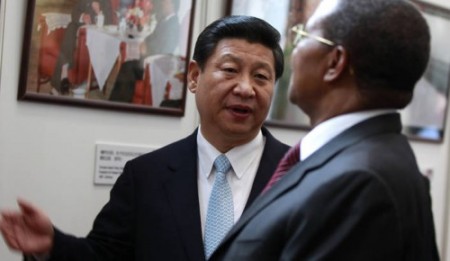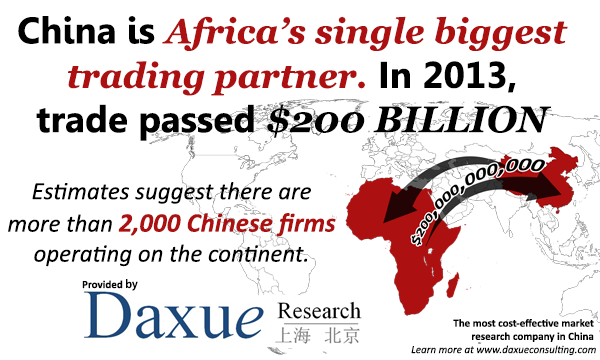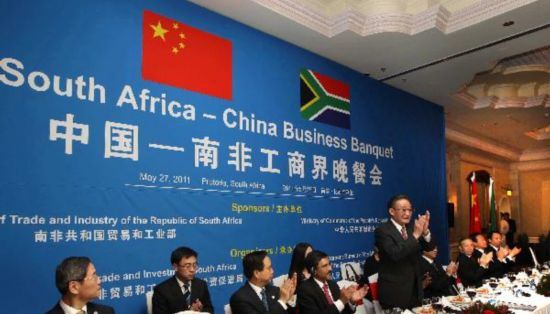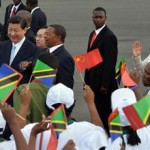Africa Business in China
Africa Business in China
Small Africa Business in China
 Based on the figure from Ministry of Commerce of the People Republic of China, the value of trade between Africa and China in 2013 exceeded more than $200 billion for the first time, and China has become the largest trade partner with Africa in the world. With the expansion of African’s export business has also spawned African restaurants, African logistics, African intermediaries and other supporting businesses. It is obvious that most Africa business activities in China are belong to the small sized business. But most of China business activities in Africa are big projects about infrastructure, energy and so on that invested by China state-owned companies.
Based on the figure from Ministry of Commerce of the People Republic of China, the value of trade between Africa and China in 2013 exceeded more than $200 billion for the first time, and China has become the largest trade partner with Africa in the world. With the expansion of African’s export business has also spawned African restaurants, African logistics, African intermediaries and other supporting businesses. It is obvious that most Africa business activities in China are belong to the small sized business. But most of China business activities in Africa are big projects about infrastructure, energy and so on that invested by China state-owned companies.
Africa Business in Guangzhou
There are about 200,000 Africans in Guangzhou, and the figures are increasing by 30-40% every year since beginning of the 2010’s. It is the main place of Africa Business in China. The first batch of Africans came to Guangzhou at the end of the 90’s and their first stop being Canaan clothing market, which is the Clothes Trading Center. The main business activity of those Africans in Guangzhou is purchase for selling.
China-Africa consultants are the new Africa Business Phenomenon in China
A new business phenomenon emerged because the irrepressible rise of trade and investment between Africa and China. That is China-Africa consultants. This new business phenomenon has a huge potential, since the industry insiders estimated there are only between 5 and 10 such consultants operating in China. Even though the market perspectives of African and Chinese business show a positive trend but the business still facing significant challenges. The challenges are primarily because of distance between two countries. Besides, different cultures can have the impact on the establishment of business networking. The role of China-Africa consultants is to be an intermediary and to diffuse the business cultures between these two countries.
The founder of Africaccess, Mahamat Adam suggested that a professional China-Africa consultant should command of both languages, which is the premise to be an intermediary and then can provide the deeper sights of China’s market for the clients as well. Adam believes have ability to speak Chinese is easier to build the trust within Chinese business networks. Apart from that, he recommended a reliable China-Africa consultant should be choose from official institution and a registered business, as they have a healthy network of contacts. A China-Africa consultant will be a good choice for those people who want to start business in China.
The Future of Africa Business in China
Since 2013, the value of direct investment of China in Africa has increased 44%, and it is predicted to grow to $50 billion (Ministry of Commerce of the People Republic of China). Comparing the investment of Africa in China, the investment is rare, only limited in the small business, like restaurant, or clothing industry. The China-Africa consultant can be a new and good opportunity for Africa to start business in China, it is not only a new business model but also itself can build the economic and culture connection and promote the business development further.
Another way to incentive the Africa business is to improve the business image of Africa business in China. A businessman from Guangzhou indicated that the characteristics of African business in China are lack of funds, prefer the low-end products and fail to realize the importance of brand. That results in the discrimination and bad image of African businessmen. The Africa governments can also encourage the export of products that have African characteristic, for instance, like foods or handicraft products and so on. It can be a good way to stimulate Africa business development in China as well.
More business consultancy in China
Source:
ChinaSmack, http://www.chinasmack.com/2011/pictures/africans-in-guangzhou-opportunities-discrimination.html
Ministry of Commerce of the People Republic of China (2014), http://www.mofcom.gov.cn/article/i/jyjl/k/201403/20140300509328.shtml
ChinAfrica(2010)















